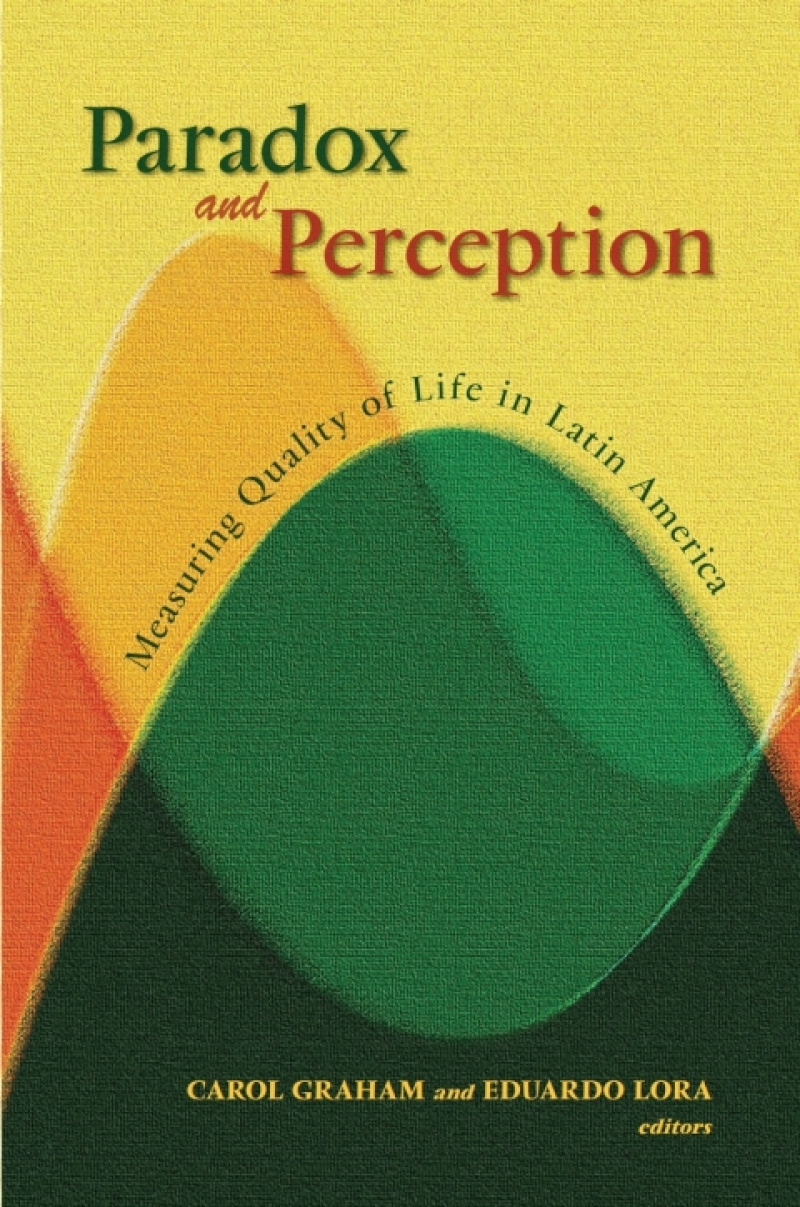The ""quality of life"" concept of quality of life is a broad one. It
incorporates basic needs but also extends beyond them to include
capabilities, the ""livability"" of the environment, and life
appreciation and happiness. Latin America's diversity in culture and
levels of development provide a laboratory for studying how quality of
life varies with a number of objective and subjective measures. These
measures range from income levels to job insecurity and satisfaction,
to schooling attainment and satisfaction, to measured and
self-assessed health, among others. Paradox and Perception greatly
improves our understanding of the determinants of well-being in Latin
America based on a broad ""quality of life"" concept that challenges
some standard assumptions in economics, including those about the
relationship between happiness and income. The authors' analysis
builds upon a number of new approaches in economics, particularly
those related to the study of happiness and finds a number of
paradoxes as the region's respondents evaluate their well-being. These
include the paradox of unhappy growth at the macroeconomic level,
happy peasants and frustrated achievers at the microlevel, and
surprisingly high levels of satisfaction with public services among
the region's poorest. They also have important substantive links with
several of the region's realities, such as high levels of income
inequality, volatile macroeconomic performance, and low expectations
of public institutions and faith in the capacity of the state to
deliver. Identifying these perceptions, paradoxes, and their causes
will contribute to the crafting of better public policies, as well as
to our understanding of why ""populist"" politics still pervade in
much of the region.
Les mer
Measuring Quality of Life in Latin America
Produktdetaljer
ISBN
9780815703952
Publisert
2013
Utgave
1. utgave
Utgiver
Bloomsbury USA
Språk
Product language
Engelsk
Format
Product format
Digital bok
Forfatter
